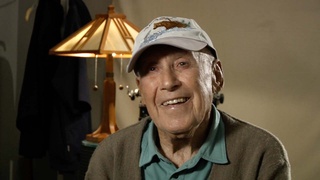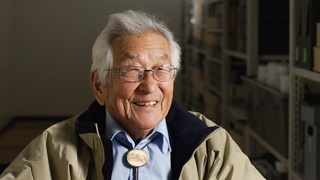Interviews
Meeting other Americans in jail
After that, there was this group of Japanese Kibei uh, U.S. Army soldiers in there. So uh, I joined them on the what they call the uh, oh what they call it, the uh, did a lot of manual work. Unloading coal and things like that. Well, these boys, there’s seven of them. They were interested in things that, they were in the army and uh when war broke out, they were made to do latrine duty, all their military equipment was taken away, latrine duty, so finally they got fed up and they said “Treat us like soldiers or release us!” And after repeated their request nothing happened so they finally went on a strike, hunger strike, they wrote out a petition where they request, all signed with blood from their fingers, and uh, that got them court-martialed. And their original sentence was to be executed. Which was later changed to thirty years. Then it was later changed to fifteen years. And I understand that after the war, they were released.
Then there was another group of American soldiers. Of German descent, and they were American Bund members. And because they were Bund members and German descent their guns were taken away and they were just made to patrol around the outer perimeters of the prisoner of war camp, you know the soldiers that they captured in Europe and brought over here. They were made to patrol around there. And while doing that, they helped some of them escape. And that’s why they were court-martialed and they were also uh, originally sent to be executed, which was later reduced to thirty years.
Date: May 9, 2006
Location: California, US
Interviewer: Lisa Itagaki
Contributed by: Watase Media Arts Center, Japanese American National Museum





